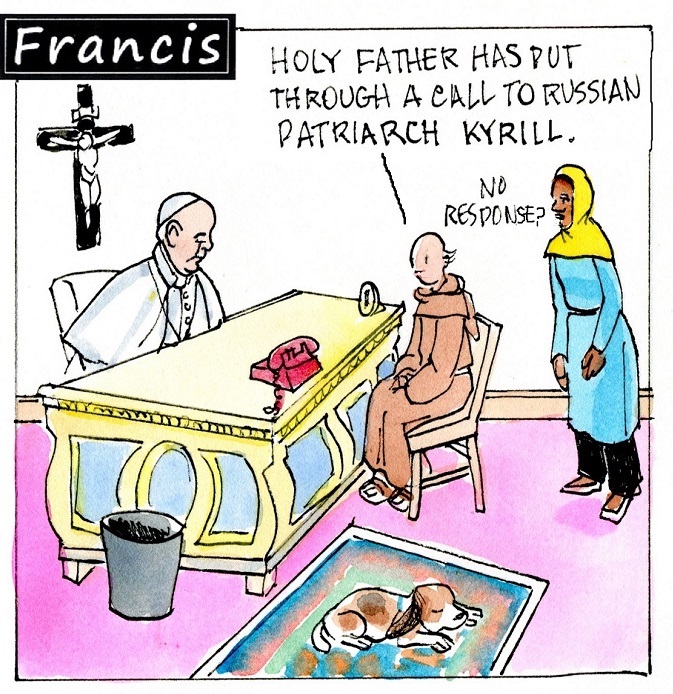



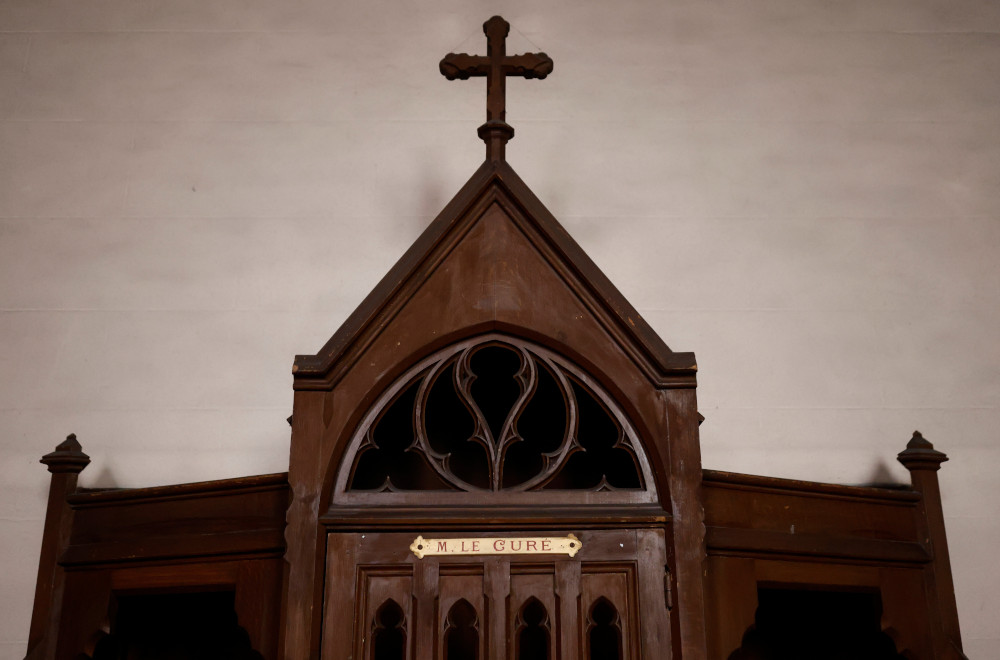

The Vatican has ordered a prominent French priest who advised the Holy See for years on matters of sex and homosexuality to cease his psychotherapy practice following allegations he sexually abused men in his therapeutic care.
But the Vatican didn’t defrock or otherwise sanction the Fr. Tony Anatrella despite several well-documented complaints against him, in further evidence of the Holy See’s reluctance to punish priests who abuse adults with the harshest measures, especially when the crimes occurred a long time ago.
French and Catholic media over the years have reported claims by several men and seminarians who were sent to Anatrella because they exhibited homosexual tendencies, only to then be allegedly subjected to sexualized therapy with him. Anatrella had been considered one of the Catholic Church’s foremost experts on homosexuality, and had served as a consulting member of the Vatican’s family and health offices.
Church teaching considers homosexual acts to be “intrinsically disordered” and the Vatican in 2005 issued a policy aimed at keeping men with “deep-seated” homosexual tendencies from becoming priests.
In a statement Jan. 17, the Paris archdiocese noted that the French justice system hadn’t prosecuted Anatrella criminally because the allegations against him exceeded the statute of limitations.
The statement said the Vatican’s Dicastery for the Doctrine of the Faith, which handles abuse cases, issued one measure against Anatrella after a church trial initiated in 2016, to “immediately renounce all professional activities as a therapist.”
Additionally, the Parish archdiocese “formally asked” Anatrella, the author of over a dozen books on gender studies, marriage and family life, to cease all publications, public ministry and participation in conferences. It forbade him from hearing confession and asked him to lead a reserved life of prayer.
The request, however, was merely a “warning” “under the penalty of canonical sanctions,” suggesting even the archdiocese was unwilling or unable to impose harsher penalties on him. The newspaper of the Italian bishops conference, Avvenire, had reported in 2018 that Anatrella’s church lawyers had argued that he committed no canonical crime.
The Vatican has articulated norms for sanctioning priests who sexually abuse minors, up to and including laicizing them, or removing them from the priesthood. And the Vatican regularly waives the statute of limitations for cases involving abuse of minors. But the Holy See’s in-house legal code has only recently begun to recognize abuses against adults, and the abuses of authority and spiritual abuses that often accompany such crimes.
Recently, another case has grabbed headlines involving a prominent Jesuit priest and artist, Fr. Marko Ivan Rupnik, who was accused by nine women of spiritual and sexual abuses dating from the 1990s when he helped run a religious community in Slovenia.
The Dicastery for the Doctrine of the Faith refused to waive the statute of limitations in the case, even after declaring a year earlier that Rupnik had been excommunicated for having committed one of the gravest crimes in the church, using the confessional to absolve a woman with whom he had engaged in sexual activities.
The Jesuits say Rupnik, whose mosaics decorate churches and basilicas around the globe, remains under restricted ministry.
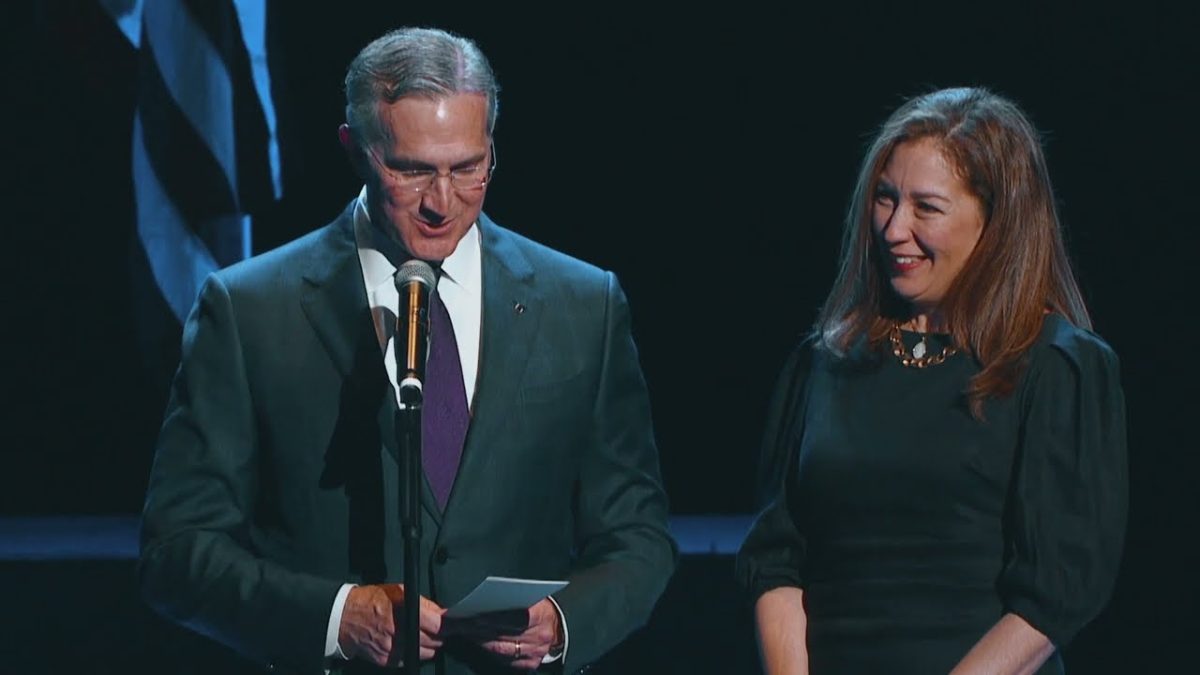


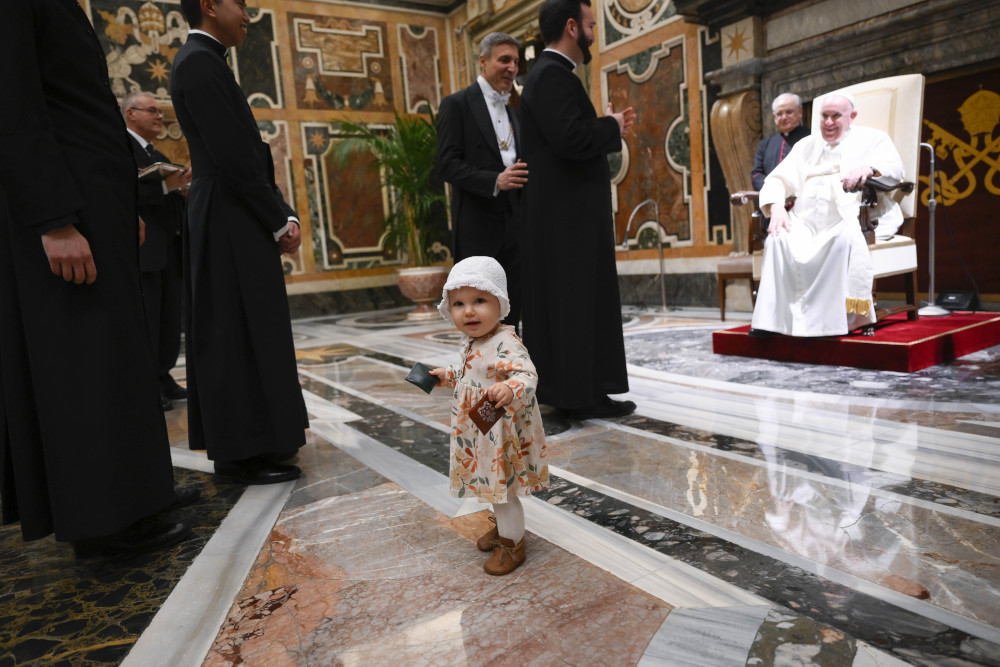

The call to faith in Jesus always is a call to service and mission, Pope Francis told seminarians, priests and staff of the Pontifical North American College.
« Whenever Jesus calls men and women, he always does so in order to send them out, in particular to the vulnerable and those on the margins of society, whom we are not only called to serve but from whom we can also learn much, » the pope said Jan. 14.
The college, a seminary in Rome sponsored by the bishops of the United States, has 116 students from 55 dioceses.
Msgr. Thomas W. Powers, rector of the college, told Francis: « The generous young men you see in front of you want to be like Jesus, the good shepherd. They know the Lord will use their eyes to seek out the suffering; their mouths to preach his Word, console the afflicted and make him present in the Eucharist; their hands to give strength to the sick and the dying and to heal those oppressed by sin; and their feet to go to the peripheries to lead the lost sheep home. »
Francis noted that the students’ years in Rome coincide with « the synodal journey that the whole church is presently undertaking, a journey that involves listening — to the Holy Spirit and to one another — in order to discern how to help God’s holy people live his gift of communion and become missionary disciples. »
The same « challenge and task » is entrusted to those preparing for ordination, he said. « People nowadays need us to listen to their questions, anxieties and dreams so that we can better lead them to the Lord, who rekindles hope and renews the life of all. »
Francis used the Gospel story of the call of Andrew and Simon Peter to illustrate what he said are three elements « essential to priestly formation: dialogue, communion and mission. »
When Jesus noticed Andrew and another following him, he asked what they were seeking and invited them to come and see where he was staying.
« Over the course of your lives, and especially throughout this time of seminary formation, » the pope told the seminarians, « the Lord enters into a personal dialogue with you, asking what you are looking for and inviting you to ‘come and see,’ to speak with him from your hearts and give yourselves to him confidently in faith and love. »
Daily prayer, Scripture meditation and praying « in silence before the tabernacle » are essential for building a personal relationship with the Lord, learning to hear his voice and discovering « how to serve him and his people generously and wholeheartedly, » the pope said.
« By staying with Jesus, the disciples began to learn — from his words, gestures and even his gaze — what really mattered to him and what his Father had sent him to proclaim, » he said. « In a similar way, the journey of priestly formation demands a constant communion: first with God, but also with those joined together in Christ’s body, the church. »
The pope asked the seminarians to « keep your eyes open both to the mystery of the church’s unity, manifested in legitimate diversity yet lived in the oneness of faith, and to the prophetic witness of charity that the church, particularly here in Rome, expresses through her concrete acts of care for those in need. »
Witnessing and participating in that service, he said, « will help you develop that fraternal love capable of seeing the grandeur of our neighbor, of finding God in every human being, of tolerating the nuisances of life in common. »
Francis prayed that the students « will always be signs of a church that goes forth, sharing the presence, compassion and love of Jesus with our brothers and sisters. »


“New wine, new wineskins” (Mark 2:22).
National Holiday for Dr. Martin Luther King, Jr.
In today’s short gospel from Mark, Jesus is questioned for not observing the regular fasting laws that the Pharisees and the followers of John the Baptist are observing. Jesus compares his presence to a wedding, when fasting is dispensed from so people can celebrate, eat, drink, sing and dance, often for several days.
Jesus is cause for feasting because heaven has come to earth in him. The Incarnation is the nuptial between God and his people, divinity and humanity. The Spirit of God is hovering over the world as at creation, the moment of conception when we came to be in God’s image. Because of Jesus, a renewal of creation is happening. Those who accept him experience a kind of conception that will lead to their rebirth as children of God.
He uses two little parables to respond to his critics. They are like someone patching an old cloak with new, unshrunken cloth. As the patch shrinks, it tears away from the rest of the garment. Or they are like someone who pours new wine, still fermenting and expanding, into an old wineskin, which can no longer stretch, so it bursts, and the wine is lost.
The imagery is about the demand that newness places on the old. New ideas, hopes and dreams stretch tradition. New energy needs room to grow. Institutions that cannot adapt to change falter. Jesus is proclaiming a new way of understanding God that will liberate the community to new life. New wine requires fresh wineskins.
Two thousand years ago, Jesus was executed to try and stop the revolution of the heart and the transformation of history he proclaimed. But the wedding could not be stopped by violence, and it was revealed at Easter as universal and unstoppable.
More than 60 years ago, the Civil Rights Movement was the new wine challenging long-standing institutional racism. A champion of change, Dr. Martin Luther King, Jr., was assassinated in 1968 to stop another wedding of justice and peace, still far from consummated but now written into the fabric of American identity. There can be no going back.
The promise of the Gospel is the energy built into the signs of the times. We feast on this promise in hope, even as we fast and struggle toward the day when it is accomplished.
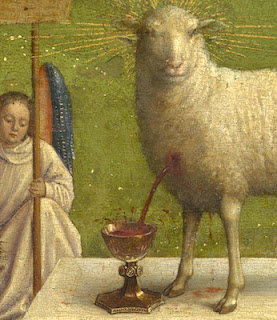


Franciscan Fr. Dan Riley felt called to write a book on the « longing to listen and learn from God within God’s world, to come to know who I am before God, and to come to know who we are as God’s people. » In Franciscan Lectio, he succeeded in putting such personal pen to paper. The question is, will it impact the reader as much as its author?
Encouraged to write by Franciscan Murray Bodo and Bruno Barnhart of New Camadoli Hermitage in Big Sur, and aided by collaborator Stephen Copeland, Riley’s self-proclaimed be « talkative » nature is reflected in the text, which is chock-full of personal stories and experiences as he shares his Franciscan take on lectio divina.
Lectio divina (divine reading) is a form of contemplative prayer that dates to the third century. Riley describes it as « a practice that arose out of the desert from people determined to become more grounded in the radicalness and richness of gospel living. »
The book is divided into four sections, based on words written in a letter from St. Clare to Agnes of Prague. Clare recommends to Agnes a style of prayer in which she should gaze upon Christ, examine, contemplate and follow his example. Thus, Riley’s section titles: Gaze, Consider, Contemplate and Imitate. The first of these takes up the majority of the pages.
Riley and Copeland have a bit of difficulty deciding on the aim of this book. Riley’s personal reminiscences are blended with quotes from a broad range of sources — St. Bonaventure, St. Clare, Robert Lax, Rainer Maria Rilke, Richard Rohr, Thich Nhat Hahn and others. He includes only one Benedictine-related source — Thomas Merton — which struck me as both unfortunate and an odd choice, considering the intimate connection between the Benedictine tradition and the practice of lectio divina.
As someone who has studied both Franciscan and Benedictine spirituality for decades, I found the absence of Benedictine sources in Riley’s chapters intentional. He credits the desert fathers and mothers with originating lectio divina, but from there mentions little of how this rich practice continues, even today, within countless monastic communities. He claims, « Lectio Divina is a significant and rediscovered practice. » It was, however, never lost.
The author allows that much of the text may seem to go in circles and, as such, will need to be revisited by the reader. But I found the structure less akin to circles than to erratic tangents that made the work hard to follow — and in mixing pronouns, asking questions of the reader along the way, and then providing his own answers, Riley further muddles his message.
This is not to undermine the validity of many of Riley’s points. He rightly asserts, « Lectio helps us to practice our coming into unity with our diversity, complexity, feeling, and thinking. » He points out how God is immediate and, « Lectio begins when we create a place within ourselves for an encounter. » I found such observations deeply nourishing.
Riley is steeped in the Franciscan tradition, having lived nearly 40 years at Mt. Irenaeus. He travels with other friars and students from nearby St. Bonaventure University, sharing the spirituality learned in his community in the Allegheny Mountains of western New York in the « marketplace » — as Franciscans have done for eight centuries.
« Our Franciscan tradition helps us open our eyes to the undervalued wholeness of being a human person and the wholeness of all creation, » he writes. There is an earnest attempt to integrate this concept into the practice of lectio divina; even an offering of « recipes » in an addendum following the main text.
Riley advocates for variations like « sidewalk lectio, » lectio of the Mountain, the lectio of St. Clare and others. He lists the four Ss of lectio: solitude, silence, simplicity, service; and the four Ws: watch, wonder, wait, work.
Lectio, Riley says, is « a full meal, » which is a delightful description. But then he confuses matters by adding, « Lectio is not random but is rich in spontaneity and depth as the spirit of God surprises us so that we also surprise one another when we ‘cook Lectio.’ » Riley creates more of a seven-course gourmet repast, where the readers may find themselves overstuffed and bewildered from the effects of the different wines served with each dish.
For those interested in learning more about Riley and Franciscan beliefs, this book is worthwhile. Those hoping to learn about lectio divina may find more of what they seek elsewhere. Perhaps, when creating this work, Riley should have taken his own words — and one of the staples of Franciscan spirituality — to heart: « One of the geniuses of Lectio is its simplicity. »